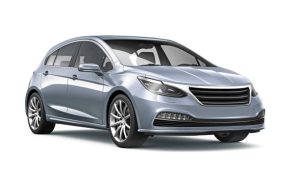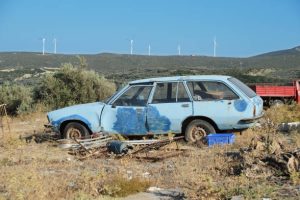
William Clay Ford Jr., a 25-year-old junior executive in the auto company bearing his name, had an enlightening experience with labor negotiations. A union official asked him to stand and swear that he was of the same material as his great-grandfather Henry Ford.
In an interview with the New York Times this week, Mr. Ford, the executive chair of the company, spoke about the difficult negotiations he is currently negotiating, one of the most difficult in recent decades.
United Automobile Workers has closed three Ford plants, including the largest, and also other plants and distribution centers at General Motors as well as Stellantis, which owns Chrysler. Shawn Fain has stated that he will call out workers at other plants if he does not get his demands of big raises, improved benefits, and job security. He called the companies “the enemy” and said that the union was fighting “corporate greed,” and standing up against the “billionaire’s class.”
Ford stated in a recent speech that the strikes helped non-union automakers such as Tesla, Toyota, and Honda. Mr. Fain replied that the workers of these companies are future U.A.W. members.
In an interview conducted after his speech, Mr. Ford stated that he had advised his executives not to let Mr. Fain’s words affect them and to focus on the task at hand. Ford also recalled his first difficult talk with a union official.
Mr. Ford stated that in 1982, his father had invited him to the U.A.W. room for discussions. He was not given a seat as a newcomer at the table, where 50 union negotiators and Ford executives sat side by side.
A union representative approached him as he sat against the wall. The man told him to stand up. What are you made out of?” Your great-grandfather and your grandfather I knew. I knew exactly what they were made from. What are you made of?
Ford claimed that he replied sheepishly that he never knew his great-grandfather or grandfather but that he still shared their values. Ford said that he faced similar confrontations every day. “I was terrified of going to the office,” he said.
About a week after that, union officials invited him into a local pub. Ford claimed that they told him to “come with us.” You passed the test.
Have you been involved in any talks that are comparable to the current negotiations?
Every negotiator and leader is unique. What I tell our executives repeatedly is, “Don’t take it personally.” Much of it is theatre. It’s important to get the deal done. It doesn’t really matter what you say. Some of them are unpleasant, while others hurt. Don’t overreact. When it’s over, we will still be one team and must move forward.
Will you be on the same team after these discussions?
I think we’ll make it. I have played hockey with some of the members of their team, and I consider them close friends.
Ford vs. U.A.W. Ford vs. U.A.W. Ford against Toyota, Honda, Tesla, and Chinese automakers. Do you agree with the leadership of your union?
If they don’t, it would be disastrous. We are not their enemy, even if they have a disagreement with us or try to bargain. I will never think of our employees as the enemy. I believe that the employees will be united with us once this crisis is over. They know who our real competitors are. When our competitors moved production to Mexico, we made the conscious decision to create jobs in America.
Does the offer that you currently have on the table put Ford at a disadvantage compared to other automakers in the market?
This is not an advantage. The deal we proposed is just about acceptable, but not by much. We will have to make hard decisions about future investments and products if you take it beyond this.
Shawn Fain said that the workers are falling behind while automakers like Jim Farley (Ford’s C.E.O.) and Mary Barra (G.M.’s C.E.O.) have prospered. What do you say?
I understand that everyone will have their own opinion on executive compensation. But I know the market for top talent. entertainers and athletes are making more money than Jim Farley or Mary Barra. The market dictates that the company with the most talent wins.
In the lean times, I did not get paid for some years. I would do it all over again if necessary.
Three of your plants have been shut down due to the strike. What is the impact on your business?
The mess is going to get worse. Suppliers will feel the immediate impact. The supply base is fragile. The supply base barely survived COVID-19 and is still not fully recovered. A prolonged strike would cause the supply base to collapse, making it difficult for the country to produce anything.
Manufacturing is an issue of national security. We saw this during Covid. I hope we don’t get into another conflict, but this industry will be crucial to the defense of our country, just as it was during World War I and World War II. Other sectors are able to produce small quantities of products. The auto industry can make tens or thousands of items.
“I never thought I would see the day when our products were so heavily politicized, but they are.” — William Clay Ford Jr.
What’s your outlook on the U.S. economy?
I’m not sure. Inflation is having its effect. We’re still watching the consumer, who is spending. On the other side, employment is still high, and our sales are holding up. There are definitely conflicting signals.
Let’s discuss electric vehicles. You launched the F-150 Lightning pickup about 18 months ago. Electric vehicle sales seemed to be taking off. Ford has now slowed down production of this truck. What happened?
E.V. Sales are up by 50 percent, which is a very rapid growth. We’ve seen an increase in the politicization of E.V.s. Blue states claim that E.V.s have many benefits, and we should adopt them as quickly as possible to combat climate change. Red states claim that this is the same as the vaccine, and the government is forcing it down our throats. We don’t want to have it. I never imagined that our products would be so heavily politicized.
Prices are the other issue. Electric vehicles are costly. As prices drop, we can expect a greater uptake of electric vehicles. Remember: Tesla is the most valuable company in our industry, and its value continues to grow. It’s important to remember this when people claim that E.V.s don’t fit their lifestyle.
Are you worried about Donald Trump’s remarks? He said in Michigan that almost all of the auto production will move to China as a result of the transition to electric cars.
I do not want to personalize it because, frankly, we need to choose a direction, and our lead time is longer than the lead time of politicians. We can’t react too strongly to any rhetoric. We need to focus on the most likely scenarios and the best way to create value for our business. So we’re pushing forward with E.V.s because we believe that they are a great option for many people. Once people have driven E.V.s, they will realize that it is a wonderful experience.
Electric vehicles are costly. Tesla’s price reductions had a major impact on your business.
We’ve seen this with each new technology. As batteries improve, the cost curve falls pretty rapidly.
Our first-generation E.V.s were the Lightning and Mustang Mach-E. They had a lot of internal combustion engineering. The next generation of E.V.s, which is due to be released soon, were developed from scratch. You can then start removing costs and price them accordingly.
Tesla is leading the way in price reductions due to its scale. We are counting on it in the future. We will be able to compete in this world and make money with our products.







